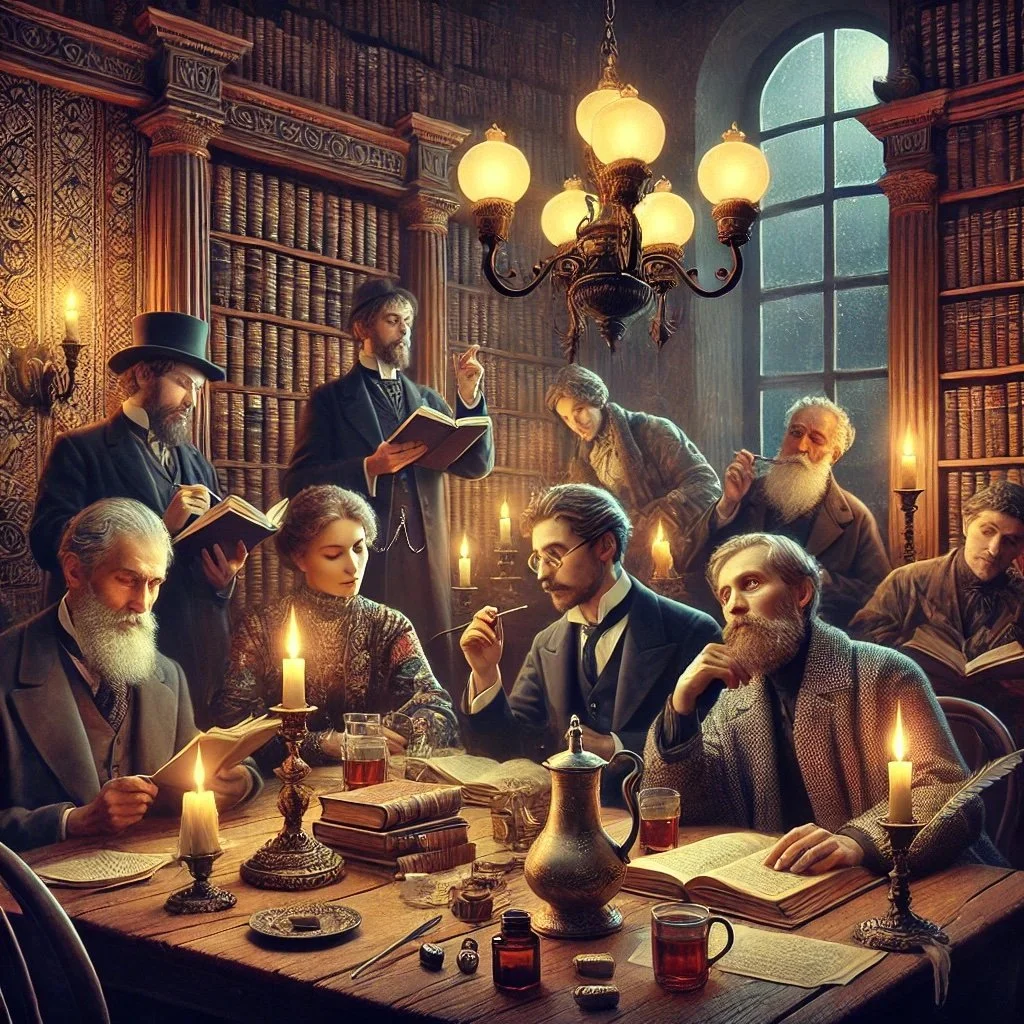The Silver Age of Russian Poetry: A Golden Era of Literary Brilliance
The Silver Age of Russian Poetry (1890s–1920s) was a literary explosion, a time when poets broke free from the rigid structures of the past and embraced a new era of artistic experimentation. Emerging in the twilight of the Russian Empire and continuing through the revolutions and upheavals of the early Soviet years, this period gave rise to some of the most profound, emotional, and philosophically rich poetry ever written.
During this transformative period, Russian poets explored mysticism, philosophy, human emotion, political change, and artistic beauty. The poetry of the Silver Age was marked by its diverse literary movements, including Symbolism, Acmeism, and Futurism, each bringing unique styles and perspectives to Russian verse. These movements produced legendary poets such as Alexander Blok, Anna Akhmatova, Osip Mandelstam, Marina Tsvetaeva, Vladimir Mayakovsky, and Valery Bryusov, among others.
The Silver Age was not just about poetry—it was a cultural revolution. Poets gathered in salons, literary cafes, and intellectual circles, debating philosophy, art, and politics. Their works reflected the social tensions of the era, capturing both the romantic nostalgia for old Russia and the feverish excitement of a modernizing society. The poets of this time were not afraid to challenge norms, question existence, and push the boundaries of language.
What makes the Silver Age so compelling is the sheer diversity of voices. Some poets, like Alexander Blok, were deeply mystical, weaving dreamlike visions into their verse. Others, like Anna Akhmatova, captured the depth of human relationships with stark, emotional clarity. Osip Mandelstam crafted intricate, intellectual poetry, while Marina Tsvetaeva expressed raw passion and personal struggle. Meanwhile, Vladimir Mayakovsky led the charge in Futurism, using bold, avant-garde techniques to revolutionize poetic form.
Despite its brilliance, the Silver Age was tragically short-lived. The Russian Revolution of 1917 and the subsequent rise of Soviet rule brought increasing censorship and persecution of intellectuals. Many poets faced exile, imprisonment, or execution, and some, like Gumilev and Mandelstam, paid the ultimate price for their art.
Yet, despite the hardships and repression, the legacy of the Silver Age endures. The works of these poets continue to inspire readers worldwide, offering a window into the hopes, fears, and dreams of a bygone era. In this article, we will explore the key movements, major poets, and lasting impact of the Silver Age of Russian poetry. If you’re passionate about Russian literature and want to deepen your knowledge of the language, Polyglottist Language Academy offers structured Russian classes to help you explore Russian poetry in its original form.
Historical Context of the Silver Age
The Silver Age emerged at a time of political, social, and cultural upheaval in Russia. The late 19th and early 20th centuries saw rapid industrialization, the decline of the Russian Empire, and the rise of revolutionary movements. These turbulent times influenced poets to explore new themes, experimental forms, and deep philosophical reflections.
Unlike the classical and restrained approach of the Golden Age, Silver Age poets were deeply influenced by European modernism, incorporating mysticism, personal expression, and abstract imagery into their work. Literary salons, avant-garde groups, and artistic circles flourished, making poetry a central force in Russian intellectual life.
Major Movements in Silver Age Poetry
1. Symbolism
Symbolism was the dominant movement of the early Silver Age, influenced by French Symbolists such as Baudelaire and Verlaine. Russian Symbolists sought to express spiritual truths through abstract imagery, music-like rhythms, and deep symbolism.
Key Poets:
Alexander Blok – Known for his mystical and visionary poetry, particularly in The Twelve (1918).
Valery Bryusov – A leading theorist of Symbolism and influential literary figure.
Andrei Bely – Merged symbolism with experimental prose and innovative poetic structures.
2. Acmeism
In contrast to Symbolism’s abstract mysticism, Acmeism emphasized clarity, precise imagery, and craftsmanship. It sought to bring poetry back to earthly beauty and human experience.
Key Poets:
Anna Akhmatova – A master of concise, emotionally charged poetry.
Osip Mandelstam – Known for his intellectual depth and refined style.
Nikolai Gumilev – Founder of the Acmeist movement and a proponent of structured, disciplined poetry.
3. Futurism
Radically experimental and rebellious, Russian Futurism rejected classical traditions and embraced the dynamism of modernity. Futurists used bold language, neologisms, and typographical innovations to challenge traditional poetry.
Key Poets:
Vladimir Mayakovsky – The most famous Russian Futurist, known for his powerful, politically charged verse.
Velimir Khlebnikov – A linguistic innovator who played with word formations and sound patterns.
Aleksei Kruchyonykh – An avant-garde poet and theorist who pushed the boundaries of poetic form.
Key Themes of Silver Age Poetry
1. Spirituality and Mysticism
Many Silver Age poets were fascinated by mysticism, philosophy, and the supernatural. This was especially prominent in Symbolist poetry, where poets sought to convey higher truths beyond material reality.
2. Love and Passion
Themes of love, desire, and human relationships permeated the works of poets like Akhmatova and Tsvetaeva, whose deeply personal poetry explored intimacy, longing, and loss.
3. Political and Social Change
As Russia experienced revolutions and wars, poets engaged with themes of political struggle, social transformation, and the search for identity. Mayakovsky, for instance, became the voice of the Soviet revolution.
The End of the Silver Age
The Silver Age was tragically cut short by political repression and the rise of Soviet ideology. Many poets faced censorship, exile, or execution under Stalinist rule. Mandelstam was arrested and died in a labor camp, Gumilev was executed, and Tsvetaeva took her own life in despair.
Despite this, their legacy remains profound, influencing generations of Russian and international poets.
Why Study Silver Age Poetry?
Studying the Silver Age of Russian Poetry not only enhances your understanding of Russian language and literature, but also provides insights into the cultural and historical shifts that shaped modern Russia. At Polyglottist Language Academy, we help students explore Russian poetry in its original language, providing the skills needed to appreciate its depth and beauty.
✅ Want to read Russian poetry fluently? 🔗 Sign Up for Our Russian Classes Today

